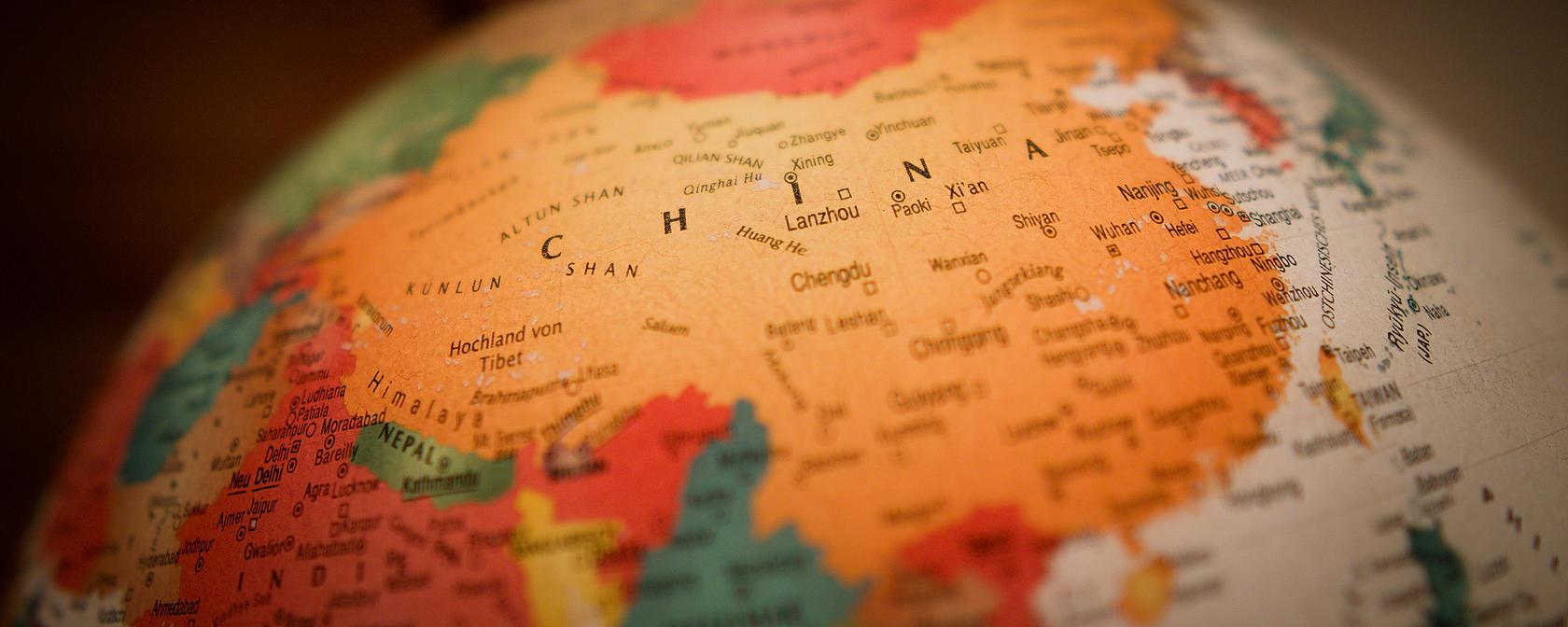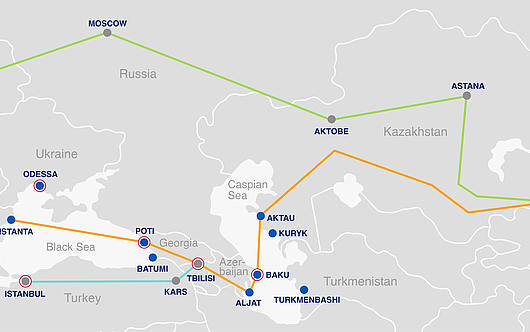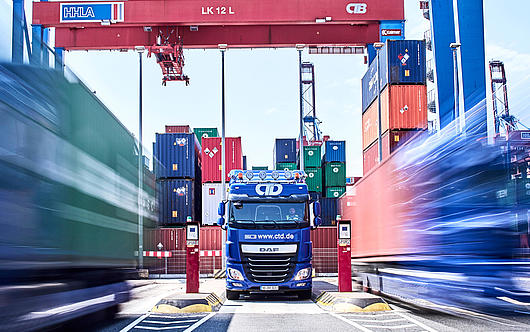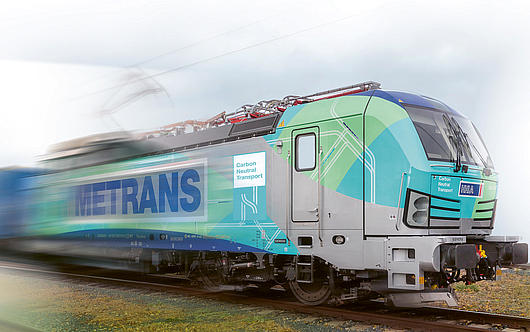
By Martin Brudermüller, Roland Busch, Belén Garijo, Stefan Hartung, Nicola Leibinger-Kammüller, Jan Rinnert, Klaus Rosenfeld and Angela Titzrath
The intensity of public discussion surrounding Chancellor Scholz’s trip to China has shown how important the development of German-Chinese relations is for Germany. Such debate is good because it ensures that the German government’s new China strategy considers a broad range of viewpoints.
This year marks the 50th anniversary of the opening of diplomatic relations between Germany and China. Over this time, bilateral relations have been characterised by ever closer cooperation between the two countries, to their mutual benefit. China has achieved enormous growth, raising 800 million people from poverty into a modern middle class, and is now the world’s second largest economy. Germany contributed to this development with its technological strength, exports and investments. Most of all though, and not least as a result of this, Germany has developed into a central player in the global economy. The country has seen strong growth and currently has one of the highest levels of prosperity in the world.
Our sites in China, and those elsewhere in the world, make significant contributions to our competitiveness. They give us the opportunities to benefit from the many technological developments in other countries. At the same time, they act as ambassadors for our values and culture, and show how German companies all over the world deal responsibly with employees, the environment and supply chains.

"We customers are spoiled"
A conversation with Angela Titzrath about chaos on the world’s oceans, disrupted supply chains and overblown expectations in online retail.
Over the past 50 years, China has become the world’s second largest and most dynamic market – thus, our presence there is particularly important in the German economy’s own interest. Especially today, the Chinese market’s huge potential gives us the opportunity to scale up more quickly so that we can also operate more successfully in other markets. Doing so allows us to secure jobs and livelihoods for many people in Germany. Our global production, research and development sites contribute to the advancement of major social projects that are important to us in Germany and Europe. These include climate protection, the energy transition, infrastructure development, progress in digitalisation, education and training (and therefore innovation), the improvement of our healthcare system in an ageing society, and lastly, the expansion of our defence.
But we must also recognise that the relationship between the two countries has changed considerably in recent years. With a view to its development, China has become increasingly robust in staking its claim as a world power. This is in evidence in the worrying tensions in the Taiwan Strait, which must be resolved peacefully. The human rights situation in Xinjiang province is also not in line with our values.
It is therefore right that Germany define its relationship with China with more nuance today, along the three dimensions of competition, cooperation and system rivalry. Finding a forward-looking balance between these three dimensions is a difficult but necessary task. As challenging as this task may be, we stand behind it. However, in the current public debate, we see an almost exclusive emphasis on the rivalry of the systems – in words and in concrete actions.

The Cosco-Agreement
On 26 October, the German government approved a participation of CSPL in the operating company HHLA Container Terminal Tollerort.
Competition is daily business in our companies: we know that you have to score points using your own strengths when you’re competing. The stronger we are ourselves, the more forcefully we can defend our positions towards China. Therefore, work needs to begin at home. To start with, we must diversify risks – for example, with semiconductors, batteries, raw materials and rare earths. We need to get an overview of our dependencies and prioritise the areas where these dependencies must be reduced. As we do, we will reach out to new as well as existing partners – for example in Latin America, Africa and Asia. We must also massively increase German and European competitiveness. This is a matter of nothing less than increasing the attractiveness of the European single market.
Crucially, this includes implementation of an ambitious research, technology and innovation agenda and fundamental reform of the macroeconomic environment for investment – particularly the urgently needed acceleration of approval procedures. More independence cannot be achieved by creating boundaries, but by increasing Europe’s economic growth and recovery of its technological leadership.
This strengthening of Germany and Europe must go hand in hand with an interest-based approach to China. This includes both affirmation of European values and the recognition that we must continue to engage in dialogue and cooperation with China. We mean this not only in terms of the economy and technological development, but also in other fields such as culture, science and youth exchange. The goal must be responsible coexistence whereby we assertively stand up for our values while simultaneously securing our economic base, including through diversified and resilient value chains. When Germany and Europe are strengthened in this way, they have the confidence to use opportunities for cooperation with China and to work towards levelling the competitive playing field on both sides.
Despite all the challenges of and with China, we are convinced that its fundamental economic growth will continue. Withdrawing from China would cut us out of these opportunities. It is therefore in Germany’s own interest that we continue to use the growth in China to strengthen Europe and stimulate growth here. The two countries are now key players in interconnected global trade due to their economic strength. Therefore, Germany, Europe and China must open up new opportunities for cooperation and jointly define projects that are in both our interests; sustainable orientation of the economy and society is certainly the central aspect. The leader in climate protection and the world’s largest CO2 emitter are natural partners in the fight against climate change. Economies of scale in the dynamic Chinese market in particular can help turn new technologies into solutions more quickly in order to achieve global climate goals. Only by working together can we bring about the urgently needed climate transition.
Fifty years of diplomatic relations have revealed the potential, and the challenges, of German-Chinese cooperation. However, one realisation has been confirmed: we can achieve more by working together than by working against each other. This is what we must build on, in our own interest and in order to solve global problems together. Differences – no matter how great – must be bridged in dialogue and with mutual respect. Indispensable
requirements for this are the systematic and continuous reduction of dependencies – which must begin today – as well as an economically and technologically strong Europe.
More information about „China – Important trading partner for Germany“

Sign up for HHLA Update and explore the changes in the logistics world!
Sign up for HHLA Update and explore the changes in the logistics world!
Sign up

